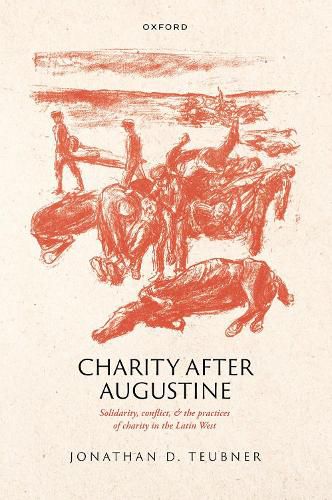Readings Newsletter
Become a Readings Member to make your shopping experience even easier.
Sign in or sign up for free!
You’re not far away from qualifying for FREE standard shipping within Australia
You’ve qualified for FREE standard shipping within Australia
The cart is loading…






Charity after Augustine explores why the Augustinian tradition's attempts to build solidarity in the societies of the Latin West have ended in disaster just as often as they have brought about justice. Focusing on the concrete practices of love and charity DL almsgiving, works of mercy, good works DL Teubner demonstrates how religious leaders attempted simultaneously to bind and hold communities together while also, in fits and starts, to expand and include others in their communities. The first part probes how Augustine's thought is put into practice, informing a tradition of political action inspired by concepts of love and enacted through practices of charity. In a second, more expansive part, Charity after Augustine turns to the ways in which the Benedictine tradition, as recieved by Gregory the Great and Bernard of Clairvaux, transforms this vision and puts it into practice in contexts radically different from those of Augustine's age. At the heart of this book is an attempt to find a non-idealized vision of love that can inform thick relations within a community that are not diluted but are rather strengthened by the incorporation of outsiders.
$9.00 standard shipping within Australia
FREE standard shipping within Australia for orders over $100.00
Express & International shipping calculated at checkout
Charity after Augustine explores why the Augustinian tradition's attempts to build solidarity in the societies of the Latin West have ended in disaster just as often as they have brought about justice. Focusing on the concrete practices of love and charity DL almsgiving, works of mercy, good works DL Teubner demonstrates how religious leaders attempted simultaneously to bind and hold communities together while also, in fits and starts, to expand and include others in their communities. The first part probes how Augustine's thought is put into practice, informing a tradition of political action inspired by concepts of love and enacted through practices of charity. In a second, more expansive part, Charity after Augustine turns to the ways in which the Benedictine tradition, as recieved by Gregory the Great and Bernard of Clairvaux, transforms this vision and puts it into practice in contexts radically different from those of Augustine's age. At the heart of this book is an attempt to find a non-idealized vision of love that can inform thick relations within a community that are not diluted but are rather strengthened by the incorporation of outsiders.